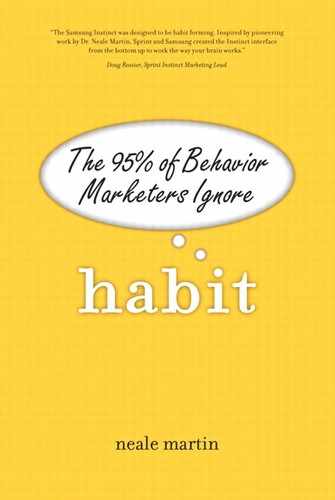Why We’re Addicted to Bill Gates
Each day, nearly one billion computers boot up with the familiar Windows or Vista icon. Even if we don’t have the Microsoft operating system, most of us write with Microsoft Word, do math with Microsoft Excel, and could not imagine presenting without Microsoft PowerPoint. No matter how much it might dismay us, we are all addicted to the software that Bill Gates foisted on the world 25 years ago.
Similar to most addicts, we no longer get a high from our addiction. But we can’t seem to break the Microsoft habit. How did Gates get such a stranglehold on our lives?
He did not invent the original operating system for the PC or any of the productivity applications that made the desktop machine a staple for businesses around the world. And many of his customers complain openly and loudly about his products. The thousands of options that come bundled on every Microsoft application spawned the term feature bloat. And system administrators have their hands full trying to plug the seemingly endless flow of new security holes in Microsoft products.[3] So why is Bill Gates the richest man in the world?
[3] Gary Kildall is credited with writing the first PC operating system, CP/M. Seymour Rubenstein and Roby Barnaby are credited with writing WordStar, the first word-processing program. Dan Bricklin and Bob Frankston invented the first spreadsheet, VisiCalc. And Bob Gaskins and Dennis Austin created the first presentation software, Presenter, which became PowerPoint.
The answer to this question is the reason for this book. Success does not come from getting to the marketplace first or from creating the best or cheapest product. Success comes from becoming the unconscious, habitual choice of your customers. Bill Gates is the richest man in the world because learning to use his company’s software habitually became necessary to participate in the modern world.
Jonathan Lazarus, Vice President of Strategic Relations for Microsoft during the mid-1990s, sees the habit formation of early consumers being largely responsible for initial penetration of PCs into business markets. “IT managers couldn’t keep PCs out,” Lazarus says. “The corporate knee-jerk reaction was to reject the idea of allowing PCs in, but people had PCs at home that outperformed what they used at work.” These early adopters bypassed IT by buying personal computers for their departments. “People built up habits at home,” Lazarus points out, “and then asked, ‘Why should my work life be any different?’”
In the early days of the PC revolution, most application developers were one-trick ponies, focusing their efforts on a specific product. VisiCalc and WordStar were pioneering products, but the companies developing them were narrowly focused. Gates understood the need to establish standard applications that end users would eventually use as habitually as they did a typewriter or calculator. His relentless quest to make sure that Microsoft was the standard resulted in a generation that thought Word, Excel, PowerPoint, and Outlook came with every PC.
Lazarus sees Microsoft’s entry into applications as key to the success of Windows. “There’s no question whatsoever that having Windows applications was critical to our success,” he says. “The user revolution becomes critical, and Microsoft changed the user expectation. By Windows 95, we totally captured user’s habits, and by Windows 98, there was an absolute expectation of information at your fingertips.”
For years, the technology community has debated the relative merits of Microsoft’s products, often attributing the company’s success to brutal business tactics. The truth is that a plethora of competitors existed at every stage of the PC revolution. IBM introduced OS/2 and bought Lotus in an attempt to wrest control of the software marketplace away from Microsoft. Apple’s missteps during the 1990s are fodder for business cases. And a legion of software companies vied endlessly with the Redmond-based monolith.
The reality is that Bill Gates crafted his company’s success by capturing the most important piece of real estate in the world: the part of our brain that controls our habits. And by doing so, he rapidly accelerated the information revolution.
